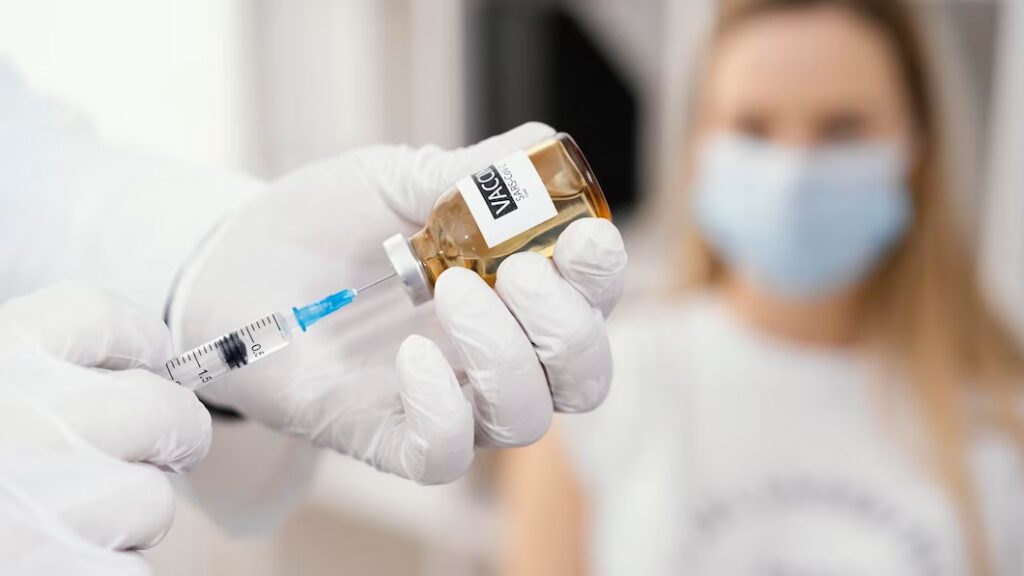Four years after the start of the pandemic, it is well known that COVID-19 is linked with thrombosis. A new report from the Centers for Disease Control and Prevention (CDC) highlights the importance of updated bivalent COVID vaccines in preventing COVID-related thromboembolic events in high-risk patients.
Infection with COVID-19 may trigger a hyperactive immune response, leading to the formation of blood clots and a vulnerability to blood vessel obstruction. Those infected are at increased risk of ischemic stroke, venous thromboembolism, and cardiovascular disease, such as myocarditis, pericarditis, and myocardial infarction (MI). The virus can cause inflammation, damaging vessel structure in the brain, peripheral blood vessels, and heart. When blood flow is disrupted, the consequences range from mild impairment to severe infarction or tissue death.
Vaccination against COVID-19 has been proven to be effective in reducing the risk of severe illness and hospitalization. This is of paramount importance to those with underlying cardiovascular or kidney disease, as they are more likely to suffer the severe consequences if contracting the virus.
Furthermore, COVID-19 vaccines, particularly the bivalent mRNA variant, have undergone rigorous testing to assure their safety and have shown high efficacy in preventing infection and transmission of the virus. The benefits of vaccination in preventing COVID-19-related cardiovascular complications, therefore, outweigh the potential risks associated with the vaccine itself.
On January 11, 2024, the CDC released a report discussing the effectiveness of the bivalent mRNA COVID-19 vaccine in prevention of COVID-19-related thromboembolic events among high-risk patients, namely those ≥65 years of age and with end-stage kidney disease.
Data assessed from those patients receiving the bivalent mRNA Covid-19 vaccine between September 2022 and March 2023 revealed a 47% effectiveness in preventing clotting events in patients ≥65 years and a 51% effectiveness in patients ≥18 years with end-stage kidney disease on dialysis compared with patients receiving the original monovalent vaccine.
At the same time, an analysis of patient data taken from the National COVID Cohort Collaborative (N3C) showed an association between partial and complete vaccination and a lower risk of major adverse cardiac events.
Who is getting vaccinated?
According to the U.S. Coronavirus tracker for 2023, approximately 80% of Americans received at least one dose of the COVID vaccine, while 70% completed the full series. The population with the highest percentage (93%) of individuals considered fully vaccinated is 65 years and older.
Adults ≥65 years and those with late-stage kidney disease on dialysis remain the population at increased risk for thromboembolic or clotting events and this includes those related to COVID-19 illness.
The protective effects of vaccination extend beyond the immediate prevention of COVID-19. By reducing the burden of severe cases, vaccination plays a large part in contributing to the well-being of those with cardiovascular disease, offering them the capability of managing their existing conditions without the additional stress of a concomitant COVID-19 infection.
The protection provided by the COVID-19 vaccine includes severe COVID-19 associated outcomes, including number of hospitalizations, mechanical ventilations, and deaths.
Does this mean the U.S. population is prepared to vaccinate annually?
In 2021, the JAHA published a systematic review and meta-analysis reporting the flu vaccine was associated with a lower mortality of patients with cardiovascular disease. Despite this, the CDC reports less than 50% of adults in the U.S. have received vaccination for influenza since the pandemic began.
Once the COVID-19 vaccine entered the market, it prevented an estimated 1.5 million hospitalizations and saved over 200,000 lives. Though reassuring, the virus continued to evolve necessitating updated vaccine formulation against a waning immunity.
The CDC announcement this week has created new implications for the direction of public health practice in the U.S. By preventing severe cases of COVID-19, vaccination indirectly mitigates the risk of cardiovascular and thromboembolic complications. The recommendation from the report is for adults, particularly those with a greater risk to become ill from a COVID-19 infection, to stay updated with their annual vaccination.




